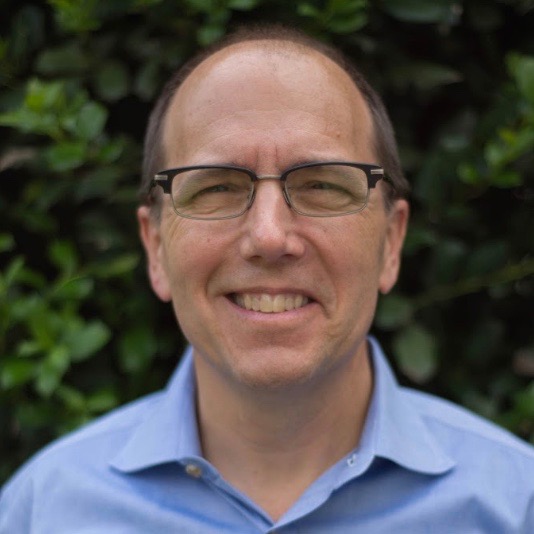In my last post, I talked about Labstorms, and how they have enabled hundreds of organizations across aid, philanthropy, government and impact investing to collaborate and experiment. In this post, I want to talk more broadly about the funding and operational “architecture” that has enabled the feedback field (some call it a movement) to develop faster and spread more widely than many other initiatives I have been involved in.
The Stanford Social Innovation Review recently published a nice piece about the creation of the Fund for Shared Insight (FSI), the launch of Listen for Good (L4G), and how FSI and L4G have listened to feedback to refine what they do. FSI has funded a number of infrastructure organizations, including Feedback Labs, and our founding partners GlobalGiving and Keystone Accountability. Together, the grantees of FSI have harnessed the power of thousands of organizations worldwide to explore and develop good feedback practices.
As I reflect on the last five years, a key takeaway for me is the power of funding a loose but cohesive network of networks. Each of FSI’s grantees has a distinct identity and focus, but they all share a common goal, namely to ask
“What do people need to make their lives better? Are we helping them get it? If not, what should we do differently?”
All of these organizations tackle this mission with different perspectives and strategies, but together, their impact is amplified.
- The SSIR article discusses how L4G has reached over 200 US non-profits (and is planning to expand).
- Feedback Labs has about 600 participating organizations across geographies, and sectors, funding source, specialization and approach. Some are domestic, some are international. Some are funded by philanthropy, others by government, aid agencies, private donors, or impact investors. Some provide tech infrastructure or ratings and insight; others work on policy; and many work directly on the frontlines.
- GlobalGiving has thousands of organizations on its funding platform, each of which gets rewarded for learning about or carrying out feedback practices.
- Keystone has provided in-depth advisory assistance to over 205 organizations.
Some wonder whether these individual networks should focus on their own sectors and geographies. This would be a mistake. Research on innovation suggests that breakthroughs are more likely to emerge from connecting networks, rather than depending on lone geniuses (or organizations). Each network feeds the others with insights, ideas, participants, and resources that could not come from within each network alone. Keeping these networks interconnected is what allows feedback practices to spread and thrive.
There are a few notable areas where connecting networks makes us better and faster:
- Ideation and Insights – How do we frame problems and issues? What would a better world look like? What are the key drivers of the existing situation as well as possibilities for bringing about a fundamental change? Big breakthroughs often come from borrowing insights from adjacent sectors and “weak ties” (sometimes those adjacent sectors can even begin collaborating in unforeseen ways.)
- Experimentation and Learning – These processes can happen in parallel so we can learn more, faster. Organizations and networks can also get together to look at and interpret outcomes of experiments.
- Experience and Resources – People and organizations can pool experience, time, money, and energy – dramatically expanding the terrain that can be covered and accelerating the pace of learning.
- Courage and Perseverance – When considering innovative approaches, networked people and organizations are more likely than an individual to be willing to be brave enough to try something new. And when a promising idea does not pan out right away, or seems overwhelming to one person or organization, other people in the network can be inspired by the idea or get a second wind.
- Faster Adoption with Lower Risk – Many funding, training, and certification platforms have tens or hundreds of thousands of users, and when they adopt partners’ ideas, the network effect can result in a much faster spread of new norms. At the same time, an “all or nothing” decision can be risky for any individual organization’s operations or business model. In a network of networks, individual risk is reduced because organizations can try different pieces – or watch and wait for others to try – without incurring huge costs of implementation.
Our “connected network” approach has been key to the momentum we have achieved in the past five years. As a community, we have explored how feedback can be the “right, smart, and feasible” thing to do.
In the coming five years, we will grapple with how it can become the “expected” or “only” thing to do – and how that can fundamentally shift the power toward those we exist to serve. I will discuss that in my next blog post soon.

Dennis co-founded and led Feedback Labs from 2014-2019. He now holds the role of senior advisor, providing sage advice from his years behind the helm. He has worked for over 30 years in international aid and philanthropy. He is also co-founder of GlobalGiving, the first global crowdfunding website, where he was CEO from 2000 to 2010. GlobalGiving has mobilized nearly $380 million for 22,000 projects in 170 countries, fueled by hundreds of thousands of individual donors and 285 leading companies and foundations.
From 1986-2000, Dennis was an economist at the World Bank, where he worked in Indonesia, Russia, Papua New Guinea, and Niger on agriculture, housing reform, energy efficiency, structural adjustment, and innovation. His New Products Team created the Innovation and Development Marketplaces in the late 1990s.
Dennis has previously also been a Visiting Scholar at New York University, Visiting Lecturer at Princeton University, Professor of the Practice and Entrepreneur in Residence at UNC-Chapel Hill, Visiting Fellow at the Center for Global Development, and economist at USAID and the Asian Development Bank. He is a graduate of UNC-Chapel Hill, where he was a Morehead Scholar, and of the Woodrow Wilson School at Princeton.







